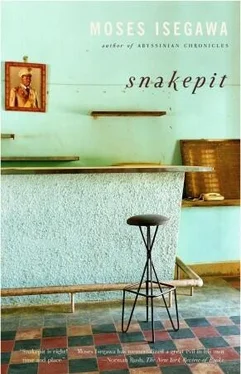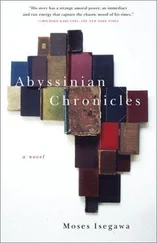“You don’t look too impressed by our circus,” Damon said with an ironical smile on his face.
“These boys don’t have guns. They don’t have powers of life and death. They can’t penetrate my mind. If you’ve been terrorized by the Bureau, you can’t be intimidated by the cartoons. In the past months I spent sleepless nights, fearing for Bat’s life. I have come through it without losing my mind. I am not going to let anyone infect me with hate, fear, negativity.”
“You are right and I will remember the word ‘cartoons.’ I like it.”
On the way back, going through areas with small dirty shops with hardly any verandas or porches to speak of, making her think they were in Bwaise because of the presence of mostly black people, they went past a leftist demonstration, the two groups kept apart by mounted police. Babit liked the caricatural part of it: the banners, the fists, the shouting, the chanting, the laughing, which made it look as if the two groups congregated to entertain bored Londoners.
Later that evening Bat commented on how excited she was. “London no longer frightens me. I just admire it. It is that part I want to keep.”
“I am glad to hear that. After all, we came to enjoy ourselves.”
“Is Damon coming back to see us?”
“He doesn’t have time. He works more than twelve hours a day.”
“Did you both learn that at Cambridge?”
“Not necessarily. Many Cambridgers don’t want to work. We are just special people,” he said by way of bragging. “By the way, what should we eat tonight?”
“Choose. You know London better.”
“Snails, frogs and dog steaks, madame.”
She just laughed.
“I can take you to a Chinese, Indian, Russian, Mexican or even Ugandan restaurant. It is all here.”
“I told you to choose.”
AFTER A MONTH Bat was already thinking about returning home. Things had started repeating themselves. He missed the discipline of work. When he discussed the idea with Babit, she agreed with him. They were sitting at the top of the Grand Empire, the Thames glittering in the distance, the city going about its evening business.
It suddenly occurred to him that if he was going back it would be nice to ask Babit to marry him. Without much ceremony he took Babit’s hand, kissed it and asked her if she wanted to be his wife. She accepted. A moment of total silence followed. Bat was glad he had been accepted. He remembered that Kalanda had asked his wife to marry him in a bar. The Professor had done it in his house at the university. It seemed the place did not matter that much.
They sat and watched the lights in the distance. They did not make any solemn promises; there were no dramatics. He had a feeling that they had known each other all their lives, and this had been just an affirmation of a lifelong commitment. He imprinted that part of the city, especially the lights, in his mind. In the years to come they would return to commemorate the day.
“Look at those lights carefully, wife. They are my wedding gift to you. Carry them in your head from now on. After every so many years we will return, stand here and reminisce.”
“Thank you, husband. This is the best night of my life,” Babit said breathlessly.
He ordered champagne. They drank it in silence, looking at each other, and at the city, making wishes. He kept thinking that his fate had been redeemed here weeks ago by Damon, and that a new one had begun in the same city. After a very long time in which not much was said, they descended to their room. They drank more champagne, played some music and danced, and Babit asked him to sing “I Can’t Get No Satisfaction” for her. She clapped as he sang, watching every gesture, enjoying every word, every inflection, every modulation. She told him afterwards what he suspected, that nobody had ever sung for her.
As they lay in bed, Babit expressed how happy and proud she was. She talked about informing her parents, her friends, people she knew. She talked about the wedding, the gowns, the guests, the ceremony, and Bat wondered if this was really what it was about. Then it occurred to him that this was indeed Babit’s chance to shine, to occupy centre-stage. Somewhere along the line he expected her to talk about children, but she didn’t. There was no use spoiling a beautiful occasion by going into a field mined with uncertainty.
In the morning he woke up with the feeling or fear that something had changed. Babit was already awake, watching him, covers up to her chin. They greeted each other cheerfully but did not say much; each seemed to be digesting the implications of the previous night. Bat was overpowered by a feeling of stability. Now he had somebody to take care of through thick and thin. And in turn there was somebody committed to him in the same way. At that moment he thought about Victoria and her obsession with him, and how strangely love operated. From now on I have to take the threats much more seriously, although I see no way of forcing Victoria to stop issuing them, he thought. In sickness and in health: from now on the threats have become health hazards I have to combat for Babit’s sake. He sneaked a look at her. She caught him at it and said, “What?”
“Nothing,” he replied, smiling. “You are my wife; don’t I have the right to look at you from all angles?”
“Your look was communicating something. As if you were having second thoughts.”
“Not me, dear wife. From now on it is you and me.”
THE JOURNEY to Cambridge was like a pilgrimage; each knew more or less what to expect. Bat showed Babit around, explaining the functions of different buildings, and where he had done what in the past.
“It is not as bad as you made it sound in Uganda,” Babit observed.
“It was the atmosphere I was talking about, not the buildings, dear.”
“I was joking.”
The last days in London were the best. They spent the biggest part of them indoors, lying in bed, taking long baths in the massive tub, or swimming in the common pool. For the first time, Bat thought about growing old and felt he knew what it would be like. He saw it as a slowing down, a liberation from urges, appetites. The years would flatten things out, till he and Babit became more or less like brother and sister. Then, and only then, would he stop working. Then, and only then, would he reveal his secrets to her, and to his friends. They might pout and call him paranoid, but he did not care. By then General Bazooka would be dead, or so he hoped, and his capers ground to oblivion. Those looking for Bazooka would find his name among those of Amin’s henchmen. Bat thought he would also ease quietly into oblivion; after all, bureaucrats thrived on invisibility.
On their last day in London they met Damon at his office in the House of Commons to say goodbye. They met his secretary, the woman who had made some of the phone calls and written the letters. Bat looked at the MPs who had signed the letters on a television screen. Blue, they looked like outlandish fish or rare birds flapping underwater. Trapped on the screen, it was tempting to dismiss them as clowns and overlook the terrible power they exercised in the world: the wars they rubber-stamped, the arms they helped pump out around the world, the garbage they let British companies dump. Dressed in suits and ties like sellers of insurance, and shouting “Hear, hear” like a family of monkeys when somebody said something funny, they did not look like men who had the power of life and death over millions of ex-colonials who were clinging to the apron strings of this nation. Damon, ironical, self-deprecating, with his small head and casual manner, was the proof of that.
Bat looked at the massive, history-laden House and at the dirty Thames outside and felt out of place. In the mass of nations yonder he could hardly see tiny Uganda. Momentarily, it looked as if he were pursuing an illusion, returning to virgin territory where he would have to struggle for every crumb of food, for everything. But that was where he wanted to be. He had no qualms about saying adios to London.
Читать дальше











